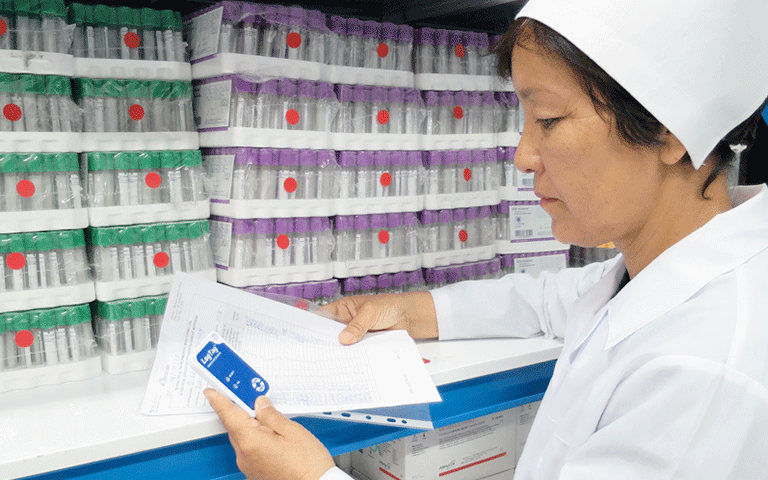Tuberculosis Clinical Trial supported by UCL
Médecins Sans Frontières (MSF) have partnered with UCL to conduct “TB-PRACTECAL” Phase II/III trial into Drug-Resistant TB treatment.

20 May 2020
Every day 4,900 people die from TB, one of the top 10 causes of death worldwide. TB strains can become multi-drug resistant and the disease kills more people than HIV.
Professor Tim McHugh leads the UCL team working with MSF to deliver assistance for in-country laboratory monitoring and capacity building. The team are working across 4 sites in Uzbekistan, South Africa and Belarus. Other partners include: The London School of Hygiene & Tropical Medicine, TB Alliance and other global leaders in the field.
The TB-PRACTECAL Trial
Tuberculosis (TB) is caused by airborne bacteria that most often affect the lungs. Drug sensitive tuberculosis is curable and preventable, with an estimated 58 million lives saved through diagnosis and treatment between 2000 and 2018. However, drug resistant (MDR or XDR-TB) has emerged and is responsible for 500,000 cases per year.
TB-PRACTECAL is a ground breaking MDR-TB clinical trial (CT), in which the drugs bedaquiline and pretomanid are being used in combination with linezolid, clofazimine and moxifloxacin for a simpler, shorter more effective treatment regimen.
UCL’s input involves laboratory assessment and monitoring.
This included:
- Support with setting up scientific facilities
- Undertaking quality assurance, development and delivery of protocols
- Monitoring plans to laboratory management
- Eventual laboratory close-out
- Expertise in the microbiology of tuberculosis
The UCL team are working to ensure the quality and integrity of the data generated from these laboratories. Also the general standard of the laboratories performing analyses for the clinical trial. This allows MSF to identify trends/non-compliance issues and training needs. It may also allow for remedial actions to take place before any serious non-compliance issues arise.
Further, by conforming to these requirements the MSF/UCL laboratory team will be satisfied that the data generated from each site is directly comparable to data generated from all other sites.
Image
MSF UK
 Close
Close


